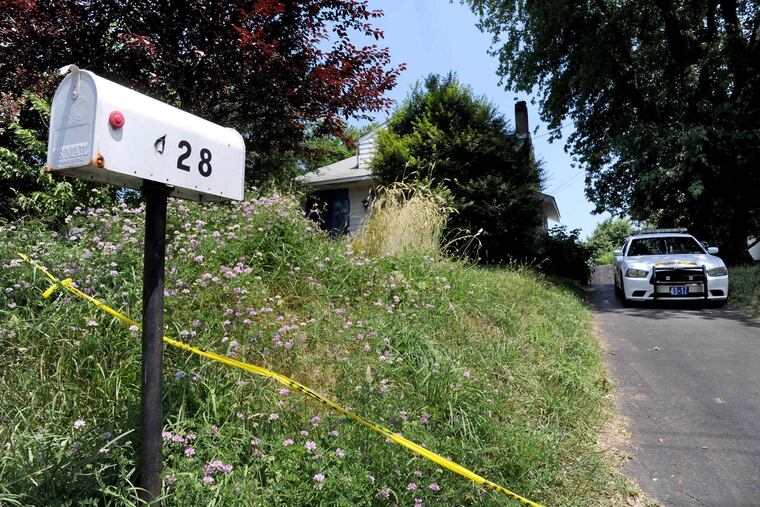Police interview girls found in Bucks home
Police on Monday disputed a Feasterville man's claim that he told officers a year ago about disturbing activity at his neighbor's house, where authorities say 51-year-old Lee Kaplan was living with 12 girls, including two children he fathered with a Lancaster County teen "gifted" to him by her parents.

Police on Monday disputed a Feasterville man's claim that he told officers a year ago about disturbing activity at his neighbor's house, where authorities say 51-year-old Lee Kaplan was living with 12 girls, including two children he fathered with a Lancaster County teen "gifted" to him by her parents.
Investigators interviewed the girls Monday, but declined to discuss the conversations. They did, however, push back after a slow drip of suggestions from neighbors that their suspicions or warnings went unheeded until Kaplan's arrest last week.
Detective Sgt. Shane Hearn of the Lower Southampton Police Department rejected the allegation by Kevin Rihl, who told the Inquirer on Sunday that he shared his concerns about his neighbor last year with two detectives and the township police chief.
"No report is on file and he never made a complaint," Hearn said.
Rihl, reached by phone Monday night, reiterated that he and a neighbor went to police in April 2015 after a series of odd events with Kaplan made them uneasy, including that the girls were never at the school bus stop.
"It needs to be out there that this is not something that went unsaid," Rihl said. The pair talked with two detectives and former Police Chief William Wiegman, he said. Wiegman could not be reached Monday.
Police are expected to release more details Tuesday.
Kaplan faces statutory rape charges for twice impregnating the girl, now 18. The rest of the children police found in the house, ranging in age from 3 to 17, are believed to be her sisters.
Their parents, Daniel and Savilla Stoltzfus of Quarryville, Lancaster County, face child endangerment charges. Investigators say that they "gifted" their teenage daughter to Kaplan as a thank-you for helping them out of a debt crisis and that she had her first child with him when she was 15.
The girls appeared to be living in Kaplan's small house and did not attend school, Bucks County District Attorney David Heckler said. Police said they had found no birth certificates for any of the children.
The case has stoked questions about the ability and authority of law enforcement or other agencies to examine concerns of child abuse.
Without evidence of a crime against a child, police do not refer complaints to the county's Department of Children and Youth Services, said Diane M. Ellis-Marseglia, a Bucks County commissioner who also is a social worker. So any calls from neighbors about Kaplan's behavior - and the girls who filled his home - would not necessarily have been child-welfare complaints.
Still, the child-protection law passed after the Jerry Sandusky sex-abuse scandal has made it difficult to ignore a child-related complaint, she said.
"You really can't blow things off as easily," she said.
Children and Youth Services and local police are required to alert each other of abuse allegations, said Chris Kirchner, executive director of the Philadelphia Children's Alliance. The challenge, she said, "is ensuring both agencies are on the same page. It's easier said than done."
A certain amount of information is needed to file such a report, Kirchner said. A report of something odd going on at a neighbor's house, such as young girls living with a single man, might only be enough reason to seek more information, but not necessarily to cross-file with other agencies.
The majority of child abuse reports come from mandatory reporters - professionals required and trained to report cases. In 2014, 47 percent of reports in Pennsylvania came from schools or a public or private social service, according to the Department of Human Services' Annual Child Abuse Report.
Frank Cervone, executive director of the Support Center for Child Advocates in Philadelphia, said his agency represents 1,000 victims a year, but added that he "can't remember a case quite like this."
He said that neighbors should not be expected to evaluate or understand a situation, but that it is important they be alert and not hesitate to contact authorities. "The community needs to be thinking about the children that live among them," Cervone said. "We are all responsible."